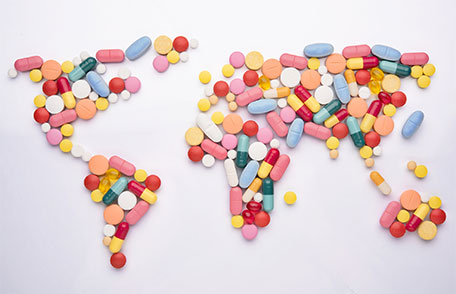Travellers are warned to declare medical conditions and carry enough prescription medications to avoid higher premiums and claims issues
Travellers are being warned to declare their medical conditions when taking out travel insurance, and make sure they carry enough prescription medication when they do jet-off on holiday. With Brexit looming and the cost of medical treatment abroad on the rise even before a decision has been made on the future of the EHIC, Rebecca Kingsley, brand manager of consumer awareness initiative, Travel Insurance Explained provides some much-needed answers on how premiums are decided, and why you should always be truthful when taking out travel insurance.
What is the impact of not declaring your medical condition to your travel insurer?
Anyone purchasing travel insurance should be asked whether they need to complete a medical screening. The insurer will usually ask if you meet any specific criteria (for example if you are taking any regularly prescribed medication) and will then complete a medical questionnaire. Travel insurers will use this to assess any associated risks and adjust the premium accordingly. Depending on the condition your insurer may ask that you pay an additional premium or they may add a medical excess to the policy (only to be paid in the event of a claim related to the declared condition).
Some people wrongly assume they do not need to declare anything, or they avoid declaring their conditions thinking this will save them money. However, if they needed to submit a claim due to the condition or any related side effects, then that claim may be denied and they will be left to pay the bill themselves. Regardless of whether the claim was for cancellation, medical expenses or needing to come home early.
What is the cost of not declaring your medical condition with your travel insurer?
With the fate of the European Health Insurance Card (EHIC, formally the E111) still undecided there is every possibility insurers and holidaymakers, if they don’t have a travel insurance policy, will be left to pay the entire bill if medical treatment is needed abroad post-Brexit.
To put things into perspective, the cost of medical treatment for a broken leg in France is just under £4000, and treatment for a heart attack in Greece will cost just over £7000 (not including nursing costs). Eyewatering figures to have to pay if your travel insurance claim is denied because you did not declare your medical conditions.
What happens if I’m on holiday and run out of my prescription medication or lose them?
Travellers must not assume that when travelling with medication they can easily replace them at a high-street pharmacy as they would in the UK. It is not hassle-free – you should remember to carry your original prescription, the medication either in the prescription box which has your details documented on the side, and/or a note from your doctor stating the reason for the medication. Many prescription drugs and over the counter medications which are legal in the UK may be illegal in other countries – especially if you are travelling to the Middle East and certain parts of Southeast Asia. Always take a few extra medicines in case your stay is extended or you lose the medication for whatever reason.
What if I am diagnosed with a condition after I’ve bought my policy?
If you are diagnosed with, or are undergoing investigation for, a medical condition or sustain an injury after you buy your travel insurance policy you should always call your insurer and provide an update. Nine times out of ten you will be asked to complete a medical declaration; this will assess the associated risks and there may be an additional premium to pay for the extra cover. In the unlikely instance that your medical situation voids the policy and cover can no longer be provided you should be entitled to a pro-rata refund or given the option to cancel the holiday and claim on the policy. Refund amounts and conditions will differ between insurers so it is best to check their individual process.

| [donate]
| Help keep news FREE for our readersSupporting your local community newspaper/online news outlet is crucial now more than ever. If you believe in independent journalism,then consider making a valuable contribution by making a one-time or monthly donation. We operate in rural areas where providing unbiased news can be challenging. |

















